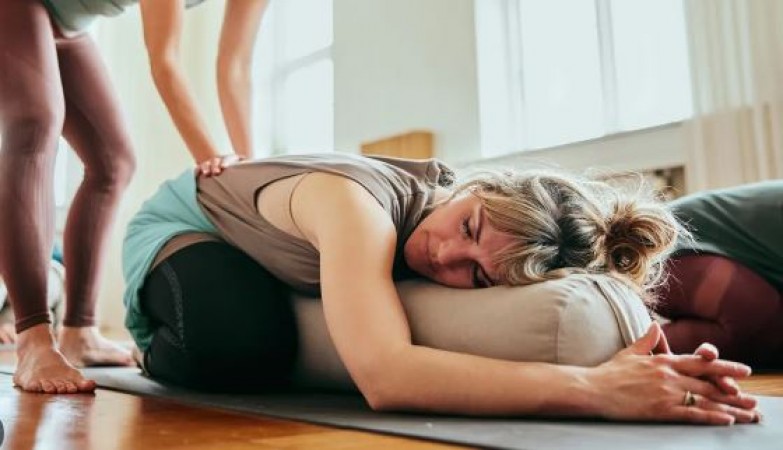
Menstrual cycles often bring along discomfort, and for many individuals, the struggle doesn't end with the period itself. Back and stomach pain can linger, impacting daily life. In this comprehensive guide, we'll explore practical ways to find relief and make those post-period days more manageable.
The fluctuation in hormones during menstruation can trigger pain not only in the abdomen but also in the lower back. Estrogen and progesterone levels rise and fall, impacting the uterine muscles and, in turn, causing discomfort in surrounding areas.
While cramps are a common symptom during periods, some individuals experience prolonged discomfort that extends beyond menstruation. This lingering pain can affect the lower back and stomach, making it essential to address and find effective relief.
One of the simplest and most effective ways to alleviate back and stomach pain is by applying heat. Heat therapy, through hot water bottles or warm compresses, can relax the muscles, reduce tension, and provide soothing relief.
Non-prescription medications like ibuprofen can be effective in managing menstrual pain. These drugs work by reducing inflammation and alleviating pain, but it's crucial to use them in moderation and follow the recommended dosage to avoid potential side effects.
Staying hydrated is often overlooked but can play a significant role in easing post-period discomfort. Proper hydration helps reduce bloating, which, in turn, can indirectly alleviate back and stomach pain.
Engaging in light exercises, such as walking or gentle yoga, can promote blood circulation and reduce stiffness in the muscles. These activities contribute to overall well-being and may specifically target areas prone to pain.
Specific stretches that focus on the lower back and abdominal muscles can provide relief from persistent pain. Incorporating these stretches into your routine, especially during and after your menstrual cycle, can help prevent and alleviate discomfort.
A well-balanced diet rich in nutrients is essential for overall health and can contribute to alleviating menstrual pain. Including foods with anti-inflammatory properties, such as fatty fish, fruits, and vegetables, may help manage discomfort.
Quality sleep is crucial for the body's natural healing processes. Establishing a consistent sleep routine and ensuring you get adequate rest during your menstrual cycle can positively impact pain management.
Traditional practices like acupuncture and acupressure have shown promise in relieving menstrual pain for some individuals. These therapies focus on specific points in the body, promoting energy flow and potentially reducing pain perception.
Certain herbs, such as ginger and chamomile, are believed to have anti-inflammatory properties. Incorporating these herbs into your diet or as supplements may offer a natural and holistic approach to easing back and stomach pain.
While home remedies and lifestyle changes can be effective for many, persistent or worsening pain should prompt a visit to a healthcare professional. Underlying issues such as endometriosis or pelvic inflammatory disease may require medical intervention.
Unusual symptoms, such as severe cramping or abnormal bleeding, should never be ignored. These may be indicative of a more significant problem that requires prompt medical attention and evaluation.
The mind-body connection is powerful in managing pain perception. Mindfulness and relaxation techniques, such as deep breathing or meditation, can help redirect focus and alleviate discomfort.
Incorporating self-care rituals into your routine can significantly contribute to managing post-period pain. Whether it's a warm bath, a comforting cup of herbal tea, or simply taking time for yourself, these rituals can have a positive impact on your overall well-being.
In conclusion, finding relief from back and stomach pain after periods is a personal journey that may require a combination of approaches. Understanding the hormonal impact, incorporating home remedies, engaging in physical activity, maintaining a healthy lifestyle, exploring alternative therapies, and knowing when to seek medical attention are all crucial elements in this journey.
By listening to your body and adopting a holistic approach to well-being, you can make those post-period days more comfortable. Remember, each individual is unique, so it's essential to explore and discover what works best for you. The key is to find a balance that addresses your specific needs and enhances your overall quality of life.
Luxury Rolls Royce Specter EV launched in India, priced at Rs 7.5 crore
Tata Punch Facelift: Tata Punch is going to get facelift update soon, know when it will be launched
This village of the country has its own Parliament and Constitution, Indian law does not work here